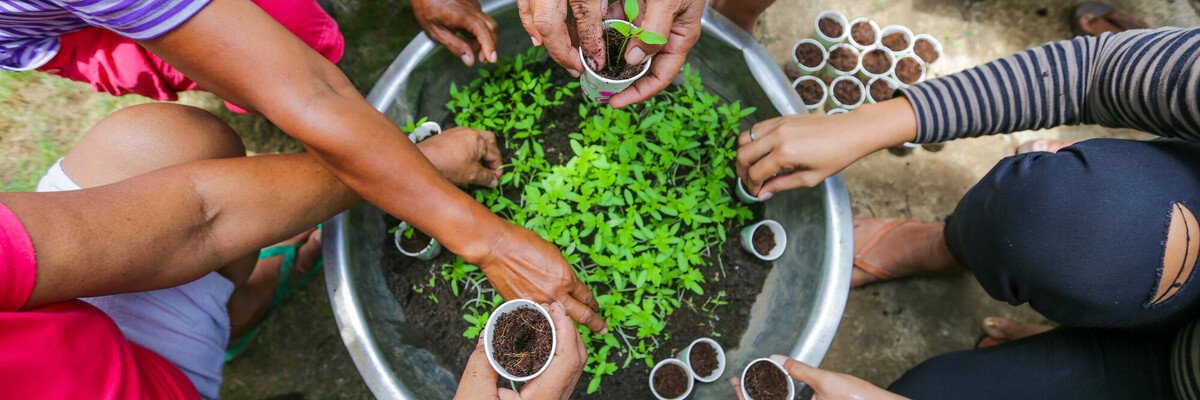- Annual report and accounts 2024-25
- Oxfam's Constitution
- Legitimacy and accountability
- Oxfam GB's Open Information Policy
- Corporate responsibility
- Information for suppliers
- Oxfam GB's Gender Pay Gap
- Oxfam's Code of Conduct
- Oxfam’s Zakat Advisory Panel
- Learning and evaluation
- Modern Slavery Act statement
- Fundraising and responding to vulnerable people
- Plans, reports and policies archive
- Oxfam's Zakat policy
- Oxfam's Impact: A Decade of Insight
- Effectiveness Reviews
- Food Producer Rights

Quigona Farmers in Magarao, Philippines transplant seedlings into small paper cups with cocopeat. The vegetable nursery is part of Oxfam and Rice Watch Action Network. Photo: Juanito Bantong/Oxfam
We hope that these insights are useful to all those working for a radically better future and we welcome you to join us on this journey.”
Danny Sriskandarajah, Chief Executive, Oxfam GB
Oxfam's Impact: A Decade of Insight
From 2011 - 2021 Oxfam conducted rigorous impact evaluations on a randomly selected sample of our projects around the world. This report looks at what worked, what didn’t and how our new strategy for radical impact reflects this learning.
A decade of insight
Oxfam's impact in numbers
of rural projects resulted in overall positive or partially positive impact.
of projects resulted in an overall positive or partially positive impact.
of urban projects resulted in overall positive or partially positive impact.